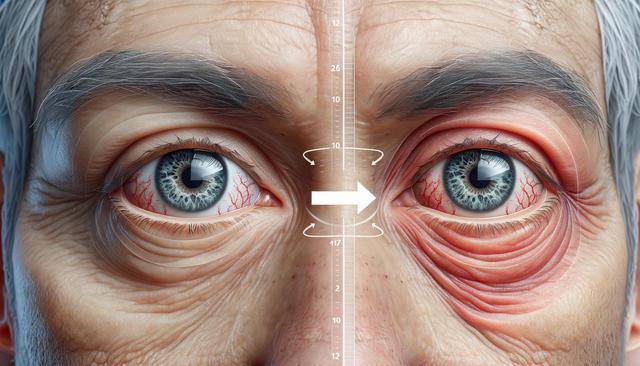What Is Macular Degeneration?
Macular degeneration, often referred to as age-related macular degeneration (AMD), is an eye condition that affects the central part of the retina known as the macula. This area is responsible for sharp, central vision, which is essential for activities like reading, driving, and recognizing faces. As it progresses, macular degeneration can cause blurriness or dark spots in the center of a person’s vision, while peripheral vision remains unaffected. The condition usually develops in people over the age of 50, and it is more common in those with a family history of the disease or specific genetic markers.
There are two primary types of macular degeneration: dry and wet. The dry form is more common and progresses slowly, resulting from the thinning of the macula over time. Wet AMD is less common but more severe, occurring when abnormal blood vessels grow under the retina and leak fluid or blood, causing rapid vision loss. Understanding these types is essential for determining the course of treatment and managing symptoms effectively.
Can Macular Degeneration Be Reversed?
Currently, there is no known cure for macular degeneration, particularly for the dry form. However, certain treatments and lifestyle changes can slow the progression and, in some cases, improve visual function. For wet AMD, treatments such as anti-VEGF (vascular endothelial growth factor) injections can help reduce the growth of abnormal blood vessels and preserve existing vision.
While full reversal of macular degeneration is not yet possible, research continues to explore regenerative therapies, including stem cell treatments and gene therapy. These emerging approaches show promise, but they are still in experimental stages and not widely available. In the meantime, managing risk factors and early detection remain the most effective strategies for maintaining eye health.
Key options to help manage progression include:
- Regular eye exams for early detection
- Use of prescribed medications like anti-VEGF injections for wet AMD
- Dietary supplements with antioxidants and zinc, known as AREDS2 formulation
- Healthy lifestyle choices, such as quitting smoking and maintaining a balanced diet
How Macular Degeneration Impacts Daily Life
The effects of macular degeneration extend beyond just physical symptoms and can significantly impact a person’s quality of life. As central vision deteriorates, tasks that require detailed sight become increasingly difficult. This includes activities like reading fine print, recognizing people’s faces, and driving safely. People with advanced AMD often experience a loss of independence and may require assistance with daily activities.
In addition to the physical limitations, the emotional and psychological effects can be substantial. Many individuals with macular degeneration report feelings of frustration, anxiety, or depression due to their reduced ability to perform once-routine tasks. Support systems, including counseling and vision rehabilitation, can provide much-needed aid in coping with these changes.
Assistive technologies can also help mitigate the impact of vision loss, such as:
- Magnifying devices for reading and close-up work
- Screen-reading software and large-print materials
- Voice-command digital assistants for daily tasks
Preventive Measures and Eye Health Maintenance
While not all cases of macular degeneration can be prevented, there are several steps individuals can take to lower their risk or slow its progression. Maintaining a healthy lifestyle is one of the most effective strategies. Diets rich in leafy green vegetables, colorful fruits, and omega-3 fatty acids support retinal health. Smoking is a significant risk factor for AMD, so quitting smoking is a crucial step in prevention.
Regular eye check-ups are also critical. Early detection through comprehensive dilated eye exams can identify changes in the retina before noticeable symptoms arise. Eye care professionals can then recommend appropriate supplements or treatments to delay further deterioration. Protecting eyes from excessive sunlight exposure by wearing UV-blocking sunglasses can also contribute to long-term eye health.
Additional preventive habits include:
- Controlling blood pressure and cholesterol levels
- Exercising regularly to promote good circulation
- Managing chronic conditions like diabetes
Current Research and Future Outlook
Ongoing research into macular degeneration offers hope for more effective treatments and potentially even reversal in the future. Scientists are investigating the use of stem cells to regenerate damaged retinal cells, as well as gene therapies that target the underlying genetic causes of the disease. Clinical trials are also exploring new medications and delivery methods that might offer longer-lasting protection or improved visual outcomes.
Another promising area involves the development of retinal implants and visual prosthetics. These technologies aim to restore partial vision by stimulating the retina or visual cortex directly. While still in early stages, they represent a potentially transformative solution for people with advanced vision loss due to AMD.
As understanding of the genetic and environmental factors behind AMD improves, personalized treatment plans may become more common, allowing for earlier and more precise interventions. Staying informed about these advancements and participating in clinical studies when appropriate can empower patients and contribute to broader scientific progress.
Conclusion
Macular degeneration, while not currently reversible, can be managed effectively through early detection, medical treatment, and lifestyle adjustments. Understanding the condition and its impact on vision allows individuals to take proactive measures to protect their sight and quality of life. Continued research holds promise for future breakthroughs, making it essential for those at risk or living with AMD to stay informed and engaged with their eye health.


